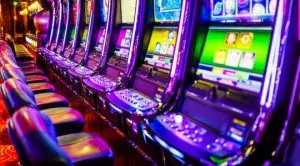 The Problem Gambling Foundation has revealed that the Timaru District has seen the number of electronic gaming machines there rise by more than 50% over the past decade and a half, but more could be done in order for the authorities to make sure that their number declines.
The Problem Gambling Foundation has revealed that the Timaru District has seen the number of electronic gaming machines there rise by more than 50% over the past decade and a half, but more could be done in order for the authorities to make sure that their number declines.
Now, the Timaru District Council has been urging the local community to make a decision on the new Gambling Venue Policy of the Council. If introduced, the policy would see a maximum of seven electronic gambling terminals allowed at new venues across the District. On the other hand, gambling venues that have fewer than seven gaming machines would be allowed to boost their number to the new limit under the new policy.
Members of the local community have already made some submissions on the policy, which has already gathered some mixed opinions since it was unveiled to the public earlier in October. For the time being, public submissions on the matter are still open. People will have until November 11th, to submit their opinions on the proposed policy.
Bruce Robertson, Chairman of the Gaming Machine Industry Association, has issued a response to the new policy presented by the Timaru District Council, explaining that tax revenue generated by the electronic gambling machines have been used as funding to local sports clubs, including the Twizel Rowing Club and the Mackenzie Ice Hockey Club. Some local schools and community sports events have also been funded with money from electronic gambling terminals.
Gaming Machines Contribute to Community But At a Great Cost, Charity Says
 Mr Robinson claims that the introduction of a more restrictive policy for electronic gambling terminals is not supported by the evidence that the machines have actually been beneficial for the local community thanks to the tax revenue generated. He further noted that the last decade has proved that the number of gambling machines has rapidly declined but the gambling participation rates have remained pretty much unchanged.
Mr Robinson claims that the introduction of a more restrictive policy for electronic gambling terminals is not supported by the evidence that the machines have actually been beneficial for the local community thanks to the tax revenue generated. He further noted that the last decade has proved that the number of gambling machines has rapidly declined but the gambling participation rates have remained pretty much unchanged.
According to the Gaming Machine Industry Association’s chairman, the community funding infrastructure’s erosion had been one of the main reasons why an increasing number of licence applications was declined. In addition, Mr Robertson noted that foreign gambling websites generate neither funding for the New Zealanders’ community nor tax revenue for the country’s Government. They do not make contributions to any problem gambling charity organisations, too.
However, according to major gambling addiction charity, the Problem Gambling Foundation, the policy is not as restrictive as it should be, with the organisation’s spokesperson Andree Froude also insisting that a “sinking lid” policy should be introduced. Ms Froude has highlighted the fact that there was a decline in the number of electronic gambling terminals in the Timaru District from over 340 in 2003 to around 165 as of 2019. She explained that it was a good thing that the number of machines had been naturally reduced, but the Foundation wanted to see their number decline even more.
According to data provided by the Problem Gambling Foundation, a total of NZ$3.435 million was returned to the local community through tax revenue derived from the electronic gaming terminals from January 2018 to March 2019. As explained by the organisation’s spokesperson, a sinking lid policy would take some time to take effect, so it would not lead to the disappearance of the electronic gambling terminals in the District. She further added that in spite of the funding the machines brought into the community, their existence came at a cost to the community. Currently, the presence of gaming machines in the Timaru District is a matter of an ethical and moral dilemma.
- Author


